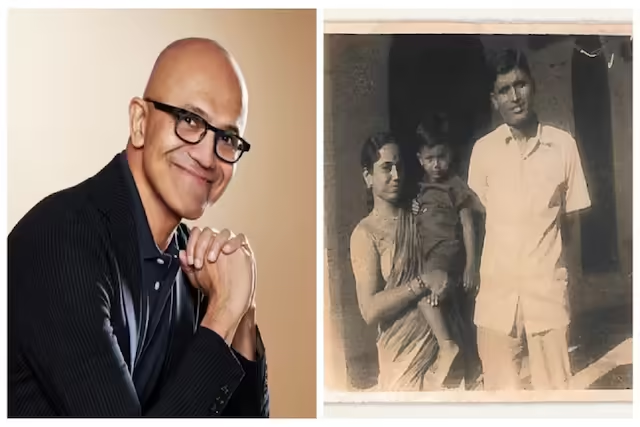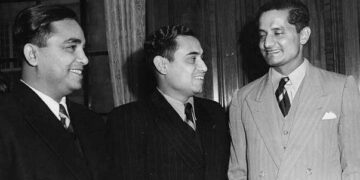Syed Hussain Jaun Asghar Naqvi (English: Syed Hussain Jaun Asghar Naqvi, born- 14 December, 1931; died- 8 November, 2002) was a famous Indian Urdu poet. Haft Zaban poet, journalist, thinker, translator, prose writer, intellectual and self-proclaimed negatist and anarchist, who used to say very deep and noisy things in a simple but sharply cut and polished language, Jaun Elia was an original poet whose poetry not only He not only won the hearts of the literary figures of his time but also served as a great inspiration for the writers and poets who came after him. Set new standards of speech. Jaun Elia found clues to new directions of love in his poetry. He was a rebel, a revolutionary and a breaker of traditions, but the tone of his poetry is so civilized, soft and lyrical that his lines, like the lances of Mir Taqi Mir, reach straight into the heart and make the listener or reader immediately notice his artistic qualities. Don’t even give a chance. It is the wonder of John Elia to continuously take the poetry of Taseer, seen occasionally after Mir, to new depths.
Jaun Elia was born on December 14, 1931 in an intellectual family in Amroha city of Uttar Pradesh. His father Syed Shafiq Hasan Elia was a poor poet and scholar. John Elia had this to say about him and himself, that the son whose extremely thoughtful and idealistic father had not taught him any practical way of living life but had taught him that education is the greatest virtue and books are the greatest wealth, would not have been wasted. What would have happened had I gone? Famous Pakistani journalist Raees Amrohi and famous psychologist Muhammad Taqi were brothers of Jaun Elia, while filmmaker Kamal Amrohi was his maternal uncle.
The events of Jaun Elia’s childhood and boyhood are in the words of Jaun Elia, like, “A short time after my birth, I started laughing strangely while staring at the ceiling; when my aunts saw this, they got scared and ran out of the room. After this untimely laughter, I have not been able to laugh openly till date.” Or “At the age of eight I had my first love and said my first poem.” Jaun Elia’s early education took place in the madrassas of Amroha where he learned Urdu, Arabic and Persian. He had no interest in text books and even failed in exams. As he grew up, he became interested in philosophy and poetry. He obtained M.A. degrees in Urdu, Persian and Philosophy. He also knew English, Pahlavi, Hebrew, Sanskrit and French languages.
In his youth, John Elia was inclined towards communism. After partition, his elder brother went to Pakistan. After the death of his mother and father, John Elia also had to go to Pakistan in 1956, unwillingly, and he kept remembering Amroha and India throughout his life. He said, “By coming to Pakistan I became an Indian.” To keep Jaun busy in his work and get him out of the pain of immigration, Rais Amrohavi issued an educational and literary magazine “Insha”, in which Jaun used to write editorials. Later that magazine was converted into “Aalmi Digest”. During the same period, John Elia edited a political history of the Middle East before Islam and translated English, Arabic and Persian books on the Batini movement as well as philosophy. Altogether he edited 35 books. He was also associated with the Urdu Tarqhi Board, Pakistan, where he played a key role in the preparation of a large Urdu dictionary.
Jaun Elia had a loving nature since childhood. He often kept talking to his beloved in his thoughts. At the age of twelve, he kept writing letters to his imaginary lover Sophia. Then, in his youth, he fell in love with a girl, Farha, whom he remembered throughout his life, but never expressed his love to her. There was a strange arrogance in his love and he considered expression of love a shameful act. “To not request beauty is to harm beauty. By not requesting beauty, we have brought shame to beauty.” In this way, he personally took revenge on behalf of all those beauties who had dated him and their lovers, whose hearts had been broken by those beauties. This is Jaun Elia’s first work in Urdu Ishqiya poetry.
When Jaun Elia was working in “Insha”, he met the famous journalist and storyteller Zahida Hina. Both of them got married in 1970. Zahida Hina took very good care of him and he was happy with her but the difference in their temperament gradually showed its true colors. This was a conflict between two mothers and neither of them was ready to change themselves. Ultimately, after the birth of three children, both of them got divorced.
Zahida’s separation from Hina was a big shock for Jaun Elia. For a long time he would sit alone in the dark room. His health deteriorated due to excessive consumption of cigarettes and alcohol; both his lungs became useless. He kept spitting blood but did not desist from drinking alcohol. He died on November 18, 2002. Like his life, he was also careless about the publication of his poetry. In 1990, at the age of sixty, on the request of people, he published his first poetry collection “Shayad”. After that many of his collections ‘Goya’, ‘Lekin’, ‘Yaani’ and ‘Guman’ were published.
Jaun Elia was a great poet, not because his poetry passes all the criteria that have been established under the poetic tradition and critical standards of centuries. He is a great poet because the biggest subject of poetry is human emotions and emotional situations, as Ashar Jaun Elia has said, there is no example of this in the tradition of Urdu poetry. Jaun’s advice to transfer the feeling to the reader or listener with intensity of feeling is found in Urdu poetry only in Mir Taqi Mir.






